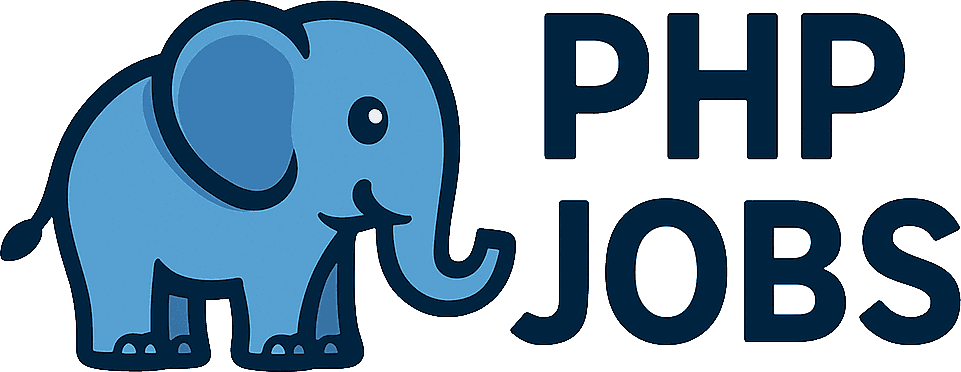
Exploring Static PHP: Empowering Developers with Portable Binaries
Are you ready to revolutionize your PHP projects? Dive into the world of static-php-cli, where "Static PHP" means creating self-contained, executable binaries that eliminate dependency headaches. This groundbreaking technology compiles your PHP interpreter with popular extensions into a single file
For decades, PHP's greatest strength was its simplicity: write some code, drop it on a server, and it just works. This "no build step" philosophy made PHP accessible and wildly popular. But in the modern era of microservices, containers, and complex CLI tools, that same simplicity reveals a core weakness: runtime dependencies.
Enter a transformative project that's flipping the script: static-php-cli. This powerful tool introduces a build step to the PHP world, and in doing so, it's unlocking capabilities that allow PHP to compete in arenas once dominated by languages like Go and Rust. This isn't just a new tool; it's a paradigm shift.
Static PHP: It's Not What You Think
First, let's clear up a common point of confusion. When developers hear "Static PHP," they often think of static analysis tools like PHPStan or Psalm. These excellent tools analyze your code for bugs and quality issues without running it. However, static-php-cli serves a completely different purpose. It's not about analyzing code; it's about static compilation—or more precisely, static linking.
The main idea is to bundle the PHP interpreter, your chosen extensions, and even your application's source code into a single, standalone executable file. No external PHP installation required.
The Anatomy of a Statically Compiled Binary
The static-php-cli builder is a sophisticated tool that produces two distinct types of artifacts to suit different needs.
Static CLI/FPM Binary
This is a complete, portable PHP interpreter. You can build a php-cli or php-fpm binary with all your required extensions compiled directly into it. This is perfect for creating consistent CI/CD pipelines or ultra-lightweight Docker images.
phpmicro Self-Extracting Executable
This is where the magic happens for application distribution. This feature packages the static PHP runtime and your application's source code (often as a PHAR file) into one single executable file. This is the key to creating zero-dependency, single-file applications in PHP.
Supported Environment Matrix
- PHP Versions: Full support for 8.2, 8.3, and 8.4, with a focus on modern PHP.
- Compilation Platforms: Supported on Linux, macOS, Windows, and FreeBSD.
Use Case #1: Zero-Dependency CLI Tools That Run Anywhere
The most immediate and powerful use case for static-php-cli is creating command-line applications that are truly portable. A developer can build a tool and distribute it as a single file that end-users can run without installing PHP or any extensions.
The perfect example is compiling an application built with Laravel Zero, a micro-framework for console apps. While you can package a Laravel Zero app as a PHAR archive, that archive still requires a PHP installation on the host machine. static-php-cli solves this "last mile" problem by embedding the PHAR and the runtime into a single executable, finally achieving the "run anywhere" goal.
Use Case #2: Powering the Next Generation of PHP Frameworks
This technology is so foundational that it's enabling other groundbreaking projects to emerge.
NativePHP
This framework allows developers to build native, cross-platform desktop applications with PHP and Laravel. This was previously impossible, but NativePHP makes it a reality by using a static PHP runtime to ensure the app can run on any user's machine effortlessly.
FrankenPHP
A modern, high-performance PHP application server written in Go, FrankenPHP uses static-php-cli to create a single, portable binary that contains the PHP interpreter, the Caddy web server, and the FrankenPHP SAPI itself.
Use Case #3: Revolutionizing PHP in DevOps and the Cloud
For DevOps engineers, static-php-cli is a game-changer for containerization. A fully static binary can run from a scratch Docker image—an empty image with no operating system layer. This leads to profound benefits:
- Drastically Reduced Image Size: From 200MB+ to well under 10MB.
- Hardened Security: Reduced attack surface with no OS layer.
- CI/CD Efficiency: Faster push and pull times for images.
The Catch: What Are the Trade-Offs?
This powerful new capability isn't without its costs. The complexity has shifted from runtime to build time.
- Binary Size: Grows with each added extension.
- Cross-Compilation is Difficult: Generally requires building on the target OS and architecture.
- Build Times and Environment Fragility: Can be slow and complex.
Final Analysis: Who Should Adopt Static Compilation?
static-php-cli represents a strategic evolution in the PHP ecosystem, trading development-time simplicity for deployment-time reliability and performance.
Highly Recommended For:
- CLI Tool Developers (e.g., Laravel Zero)
- Desktop App Developers (NativePHP)
- DevOps & Microservices (Docker/FrankenPHP)
Advanced Use Case For:
- Serverless Developers building hyper-optimized custom runtimes.
Low Impact For:
- Traditional Monoliths (e.g., standard WordPress or Laravel apps).

